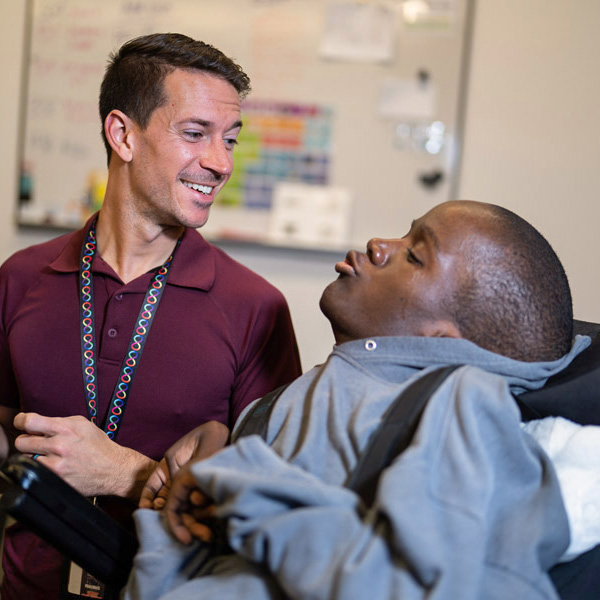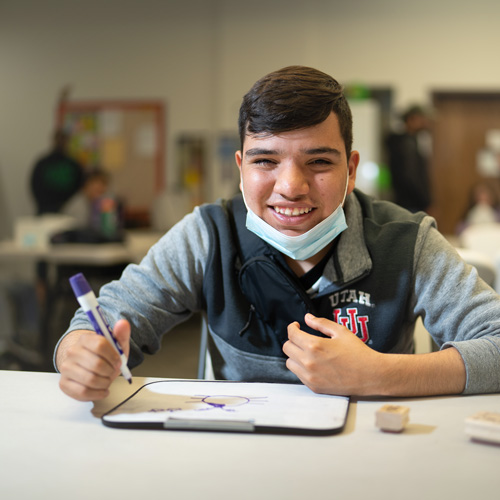Bachelor's Degree Programs At-a-Glance
To get a Utah Professional Teaching License in Special Education, you can choose from different areas like helping students with Mild/Moderate Support Needs, Extensive Support Needs, Preschool/Early Intervention Special Education, Visual Impairments, or Deaf and Hard of Hearing. You'll need to take around 120 credits of college coursework to earn your degree.
Degree Specializations

Extensive Support Needs
The Extensive Support Needs program trains teachers to work with K-12 students and adults up to age 22 who have complex support needs. It focuses on creating personalized instruction plans, managing behavior, and using data to guide interventions. The program combines coursework with hands-on experience in special education classrooms.
View Admissions Information
Specialization Information

Mild/Moderate Support Needs
This program trains graduates to teach students with high-incidence disabilities like learning disabilities, intellectual disabilities, emotional and behavioral disorders, and communication disorders in grades K-12. They will use effective teaching strategies that are backed by research. Graduates may also consider completing the ESL Endorsement if they plan to work with Mildly/Moderately disabled students.
View Admissions Information
Specialization Information

Preschool Special Education & Early Intervention
Graduates learn to work with infants, toddlers, and preschool children with developmental delays or disabilities. They get to partner with families and other experts to create personalized plans for each child. Family-centered early intervention specialists get to work with families in their homes.
View Admissions Information
Specialization Information

Visual Impairments
The Visual Impairments specialization covers a range of topics such as the Unified English Braille code, Assistive Technology for Students with Visual Impairments, and the Expanded Core Curriculum. Candidates learn how to support their students in developing social skills, succeeding academically, and more.
View Admissions Information
Specialization Information

Deaf & Hard of Hearing
The Deaf and Hard of Hearing specialization coursework covers a wide range of topics, including spoken language through audition, visual communication approaches, and American Sign Language. The program emphasizes language and literacy development, social skills, cognitive development, and academic success.
View Admissions Information
Specialization Information

